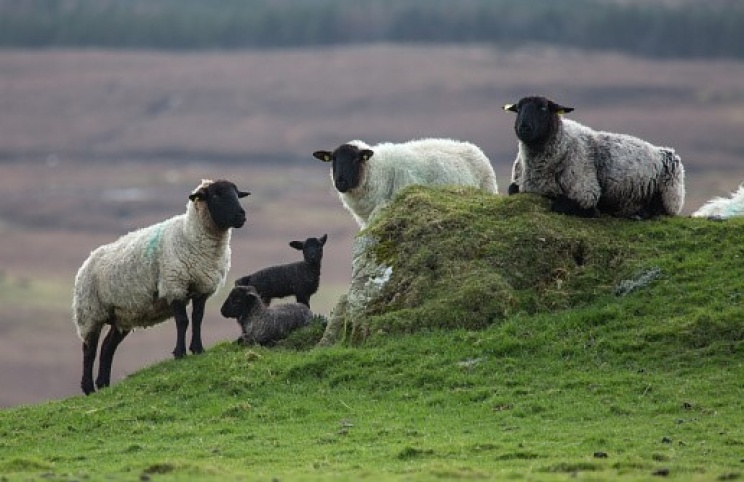In our 2016 study of what homeowners look for when buying a home, we found that 62% of participants find a property in the countryside more appealing. Once you get out of the ‘big smoke’ of Northern Ireland’s cities, you’re never too far from the countryside. While some of you will be attracted to the bright lights of the city, a love and appreciation of country living is never too far from you. So, whether you’ve grown up in the countryside or looked on wondering how people can survive living in the middle of nowhere, here’s 12 signs to spotting someone who lives in the country.
12 signs you know you live in the country
1. You have a pair of wellies at the back door
Rule number one of living in or near the country is that you must invest in a good pair of wellie boots. None of these fancy, designer wellie boots, these wellies are going to get wet, and they are going to get dirty. Your wellie boots will always be at hand, just in case you need to venture out into the yard or in case you need to jaunt across the fields.

Source: Thinkstock
2. At some point, you’ve woken up to a lamb or goat in your front garden
It’s not uncommon to wake up to 4-legged visitors in your front or back garden. Not only can you get unwelcome guests in your garden, but come the weekend you can guarantee your lie in will be disrupted by sheep, cows and goats in nearby fields. You will come to get used to these animals and they’re just one of the many reasons that so many people in Northern Ireland find the green fields of the country more appealing than the bright lights of the city when looking for a new home.

Source: Thinkstock
3. A trip to the shop is never a 2-minute job
A trip to the local shop for some milk and bread is never as straight forward as it should be. You’re drive could encounter some 4-legged friends previously outlined, or you’ll maybe even come across a tractor or two on route. And once you get to the shop, it’s not always as straight forward as grabbing your stuff and going, as you’ll often bump into someone you know, and a two-minute trip for milk could quickly become a twenty-minute conversation. It’s all part of the charm of living in the friendly, country community.
4. Going ‘into town’ takes a lot of planning
Your friends must think you are crazy because when it comes to a lunch date or a night out on the town, you are so particular about meeting times, how you are getting there and back, how long the journey will take and how much the taxi will cost. Your excuse, “I live in the backend of nowhere”.
5. Your first car was a tractor
Growing up in the country or on a farm, you will more than likely have driven a tractor long before you got anywhere near the driver’s seat of a car. If you’re planning on moving to the country, you’ll want to get yourself a spin on a neighbour’s tractor, as this is one NI experience everyone should experience at some point in their lives.

Source: Thinkstock
6. You know and appreciate where food comes from
When you live in the country you will have a real understanding of the time and effort that goes into producing the food you buy in your local shop. Not that your city counterparts won’t, but often you will even know the producers, and you have a real appreciation for the heritage of the food. Shout out to all our great food and drinks producers here in Northern Ireland.
7. The city folk don’t quite understand what you’re saying
Living in the country often brings with it words and phrases that are unique to your area. While this is great when communicating with your neighbours, when it comes to venturing into the big smoke, or neighbouring counties, it can often seem like you’re talking a completely different language. Unless of course you’re going from Kilkeel to Ballymena where you’ll be able to pick up a conversation as if you have been neighbours your whole life.
8. You know the true meaning of peace and quiet
Away from all the hustle and bustle of city living or the 9-5 office set-up, you truly appreciate the sound of peace and quiet in the countryside. The sound of traffic diminishes, there are no sirens, just the sound of the wind, animals in the fields and the odd rumble of a car driving past.

Source: Thinkstock
9. You’ve become immune to the smell of slurry being sprayed
Nothing beats the good aul smell of the country air, and this can often mean the smell of slurry. This is part of the course when living in the country, and whilst others turn their nose up and complain, you simply get on with things.

Source: Thinkstock
10. You know everyone at your local
When it comes to socialising and nights out in the country, you’ll have a local that you always stop in at and you’ll know everyone who drinks there. It’s just another part of the charm of living in the country, and provides another real sense of belonging to the community. Forget about the pumping music from nightclubs in the towns and cities, there’s nothing quite like the atmosphere of a Northern Ireland country pub.
11. You enjoy getting out into the garden and enjoying the great outdoors
During the spring and summer months, your weekend will often involve spending time in the garden with your family. From growing plants and maintaining your lawn, to heading out for a stroll in the fields, country living is all about embracing the great outdoors.
12. Your door is always open
It’s not uncommon to have friends, family and neighbours stop by unannounced. In Northern Ireland, this means having the biscuit tin filled, and the kettle at the ready at all times. When it comes to country living, your door is always open.
How can you spot someone who lives in the countryside?
Have we missed any signs that you can spot someone who lives in the country? We are keen to hear your ‘sign’s that you live in the country’, so share them with us by commenting below or join the conversation on our Facebook Page.




